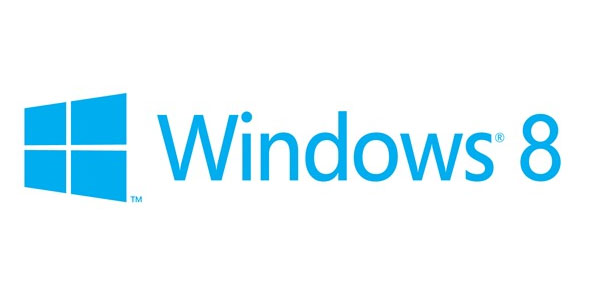From The Blog
-
ConnectWise Slash and Grab Flaw Once Again Shows the Value of Input Validation We talk to Huntress About its Impact
Written by Sean KalinichAlthough the news of the infamous ConnectWise flaw which allowed for the creation of admin accounts is a bit cold, it still is one that…Written on Tuesday, 19 March 2024 12:44 in Security Talk Read 705 times Read more...
-
Social Manipulation as a Service – When the Bots on Twitter get their Check marks
Written by Sean KalinichWhen I started DecryptedTech it was to counter all the crap marketing I saw from component makers. I wanted to prove people with a clean…Written on Monday, 04 March 2024 16:17 in Editorials Read 1583 times Read more...
-
To Release or not to Release a PoC or OST That is the Question
Written by Sean KalinichThere is (and always has been) a debate about the ethics and impact of the release of Proof-of-Concept Exploit for an identified vulnerability and Open-Source…Written on Monday, 26 February 2024 13:05 in Security Talk Read 1116 times Read more...
-
There was an Important Lesson Learned in the LockBit Takedown and it was Not About Threat Groups
Written by Sean KalinichIn what could be called a fantastic move, global law enforcement agencies attacked and took down LockBit’s infrastructure. The day of the event was filled…Written on Thursday, 22 February 2024 12:20 in Security Talk Read 1087 times Read more...
-
NetSPI’s Offensive Security Offering Leverages Subject Matter Experts to Enhance Pen Testing
Written by Sean KalinichBlack Hat 2023 Las Vegas. The term offensive security has always been an interesting one for me. On the surface is brings to mind reaching…Written on Tuesday, 12 September 2023 17:05 in Security Talk Read 2135 times Read more...
-
Black Kite Looks to Offer a Better View of Risk in a Rapidly Changing Threat Landscape
Written by Sean KalinichBlack Hat 2023 – Las Vegas. Risk is an interesting subject and has many different meanings to many different people. For the most part Risk…Written on Tuesday, 12 September 2023 14:56 in Security Talk Read 1859 times Read more...
-
Microsoft Finally Reveals how they Believe a Consumer Signing Key was Stollen
Written by Sean KalinichIn May of 2023 a few sensitive accounts reported to Microsoft that their environments appeared to be compromised. Due to the nature of these accounts,…Written on Thursday, 07 September 2023 14:40 in Security Talk Read 2128 times Read more...
-
Mandiant Releases a Detailed Look at the Campaign Targeting Barracuda Email Security Gateways, I Take a Look at What this all Might Mean
Written by Sean KalinichThe recent attack that leveraged a 0-Day vulnerability to compromise a number of Barracuda Email Security Gateway appliances (physical and virtual, but not cloud) was…Written on Wednesday, 30 August 2023 16:09 in Security Talk Read 2102 times Read more...
-
Threat Groups Return to Targeting Developers in Recent Software Supply Chain Attacks
Written by Sean KalinichThere is a topic of conversation that really needs to be talked about in the open. It is the danger of developer systems (personal and…Written on Wednesday, 30 August 2023 13:29 in Security Talk Read 1895 times Read more...
Recent Comments
- Sean, this is a fantastic review of a beautiful game. I do agree with you… Written by Jacob 2023-05-19 14:17:50 Jedi Survivor – The Quick, Dirty, and Limited Spoilers Review
- Great post. Very interesting read but is the reality we are currently facing. Written by JP 2023-05-03 02:33:53 The Dangers of AI; I Think I Have Seen this Movie Before
- I was wondering if you have tested the microphone audio frequency for the Asus HS-1000W? Written by Maciej 2020-12-18 14:09:33 Asus HS-1000W wireless headset impresses us in the lab
- Thanks for review. I appreciate hearing from a real pro as opposed to the blogger… Written by Keith 2019-06-18 04:22:36 The Red Hydrogen One, Possibly One of the Most “misunderstood” Phones Out
- Have yet to see the real impact but in the consumer segment, ryzen series are… Written by sushant 2018-12-23 10:12:12 AMD’s 11-year journey to relevance gets an epic finish.
Most Read
- Microsoft Fail - Start Button Back in Windows 8.1 But No Start Menu Written on Thursday, 30 May 2013 15:33 in News Be the first to comment! Read 116529 times Read more...
- We take a look at the NETGEAR ProSafe WNDAP360 Dual-Band Wireless Access Point Written on Saturday, 07 April 2012 00:17 in Pro Storage and Networking Be the first to comment! Read 87494 times Read more...
- Synology DS1512+ Five-Bay NAS Performance Review Written on Tuesday, 12 June 2012 20:31 in Pro Storage and Networking Be the first to comment! Read 82040 times Read more...
- Gigabyte G1.Sniper M3 Design And Feature Review Written on Sunday, 19 August 2012 22:35 in Enthusiast Motherboards Be the first to comment! Read 80340 times Read more...
- The Asus P8Z77-M Pro Brings Exceptional Performance and Value to the Lab Written on Monday, 23 April 2012 13:02 in Consumer Motherboards Be the first to comment! Read 70995 times Read more...
Displaying items by tag: Hacking
Blizzard User Database Breached, Encrypted Passwords, User Account, and Authenticator Information Stollen
 |
Yesterday (Thursday August 9, 2012) Blizzard announced that someone had breached their network and accessed account information illegally. The news comes after months of blaming users for compromised accounts, hacks, stolen items and more. As of right now Blizzard is stating that no credit card information or real names were accessed, the attackers did get enough to get into people’s accounts with a little work which raises some questions about their original security and what they can realistically do to secure their network.
Google Asks Users to Setup 2-Step Security, But Ease of Use Trumps Security With Too Many To Make a Difference
 |
Google would like you to use two-factor authentication for their Gmail service to help prevent unauthorized access. Using this extra layer of security can protect you and your data, which makes it sound like a good idea. The advice comes after the recent publication of Mat Honan’s tragic and life changing, account hack thee have been many changes to the way that the companies involved do business. While we sympathize with Mat completely we are actually kind of glad that it was someone of note that had this happen. If this had been a regular consumer it is unlikely that Google, Apple, or Amazon would have done anything to fix these issues. In fact most of the issues that allowed this hack to happen have been in place for a very long time.
Social Networking Sites Make Cloud Account Compromise Easier For Would-be Hackers
 |
Identity theft is nothing new and unfortunately it is also still very common. By Some estimates 1 out of 3 people will have experienced identity theft of some sort. After a close relative had their identity stolen I did a little bit of research into the methods that some use to steal others identities and was surprised at how easy it is to do. Now that we have social sites like Facebook, Twitter and more it is actually becoming easier to steal people’s personal information and do massive amounts of damage to them financially and personally.
Windows 8 RTM Leaked; Again...
 |
Russian leaker WZOR confirmed yesterday that he is in possesion of both x86 and x 64 Windows 8 Enterprise RTM. He stated that they will leak these to the web anytime and that the "Pro" versions (both x64 and x86) can also be expected in near future. This version differs from the earlier "N" editions by not having Windows Media Player stripped out. Windows Server 2012 was also leaked yesterday via the same source, and will probably be available together with Windows 8 RTM leaked versions on popular torrent sites, and similar sources.
Anonymous Turns On Hacker That Defaced Children's Charity Site RedSky.tv
 |
Although to many the Anonymous collective is anything but a protector or a hero there are many times when the faceless group has come to the aid of others and punished members (or people pretending to be members) of the group. Although we have heard of more than a few of these internal disciplinary actions, there are a few that stand out. One recent incident was when someone who claimed to be part of Anonymous hacked Sesame Street’s YouTube account and replaced a few Videos with Porn. Another was when a group released names and addresses of police informants and also home addresses for police officers to the public. In both of these cases the guilty parties found themselves on the wrong end of a collective that knows how to not only find you, but make you feel very helpless indeed.
Foolish French Company Early Flicker Tries To Trademark The Anonymous Logo And Tag Line
 |
Jim Croce one sang that there are some things that you just do not do; one of them should be not to try and steal the unofficial logo for the group Anonymous. Foolishly this is what a French company has done and has now drawn the wrath of a group that claims ties to the hacker/activist collective. The company in question is named Early flicker and they have registered the headless man and tag line that Anonymous uses in all of their communication “We are Anonymous, We do not forgive, We do not forget. Expect us”.
Ubisoft Denies UPlay Is A Rookit, Fixes The Exploit With A Patch
 |
Ubisoft has responded to the claims that its UPlay DRM software is a rootkit that enabled them (and anyone else) to install arbitrary code on systems that it was installed on. The original claim was from developer Travis Ormandy who posted the issue on pastebin and also showed the vulnerability working with a website specially crafted to take advantage of the exploit he found. Ormandy likened the issue to Sony’s famous screw up with their BMG DRM that was in actuality a rootkit and caused the recall of quite a bit of Sony games.
Black Hat Conference Shows Vulnerabilites in Third Party Apps for Apple's iOS
 |
Straight from the Black Hat Conference in Las Vegas we have some bad news for the Apple fans. It seems that the myth surrounding the security of the iPhone is starting to crack around the edges. This is something that we predicted would happen when the trend to use Smartphones for common net tasks first started appearing. It only make sense that malicious coders would start hitting out smart phones after all. I mean how many people use their phones for banking, personal and work email, store passwords to online accounts in their phones with password lockers and more. To be honest, considering the number of smart phones in use, we are surprised that it has taken this long.
Charlie Miller Shows Off How Dangerous NFC Can Be At Black Hat
 |
The Black Hat conference is happening right now in Sin City and already there is news coming out of the gather that should send chills down the spine of many smartphone owners. Apparently it is dead simple to exploit the NFC (Near Field Communications) found on Nokia and Samsung Products (this also extends to the NFC that will be in Apple’s devices when they are launched later this year). If you trot around with your NFC feature enabled someone can gain control of your phone by simply brushing a properly prepared tag against it.
Skype Is No Longer A Secure Means Of Communication
 |
About two weeks ago we saw a random tweet that seemed to indicate that Microsoft had added in technology that would allow for easier spying on Skype conversations. Right after this a tweet on the YourAnonNews feed seemed to indicate that the “bug” that was accidentally sending some conversations to random members of your contact list was related to the new “feature”. There was a much more ominous tweet about an hour later that claimed Skype had been hacked and the source code downloaded. Although we never were able to confirm the relationship to the bug and the reworking of supernodes to switch to Microsoft run servers, we did find out that the released code was not the official source code, but a posting of a decompiled version of the Skype application; still useful if you wanted to look for an exploit, but not the original source code to be sure.
